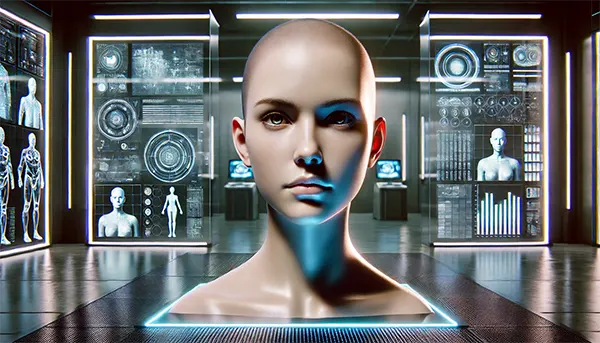Digital Immortality: How AI-Powered Avatars Replicate Human Personalities

The concept of digital immortality is no longer a distant science fiction fantasy. Advances in artificial intelligence (AI) and machine learning have given rise to AI-powered avatars that can replicate human personalities, thoughts, and even conversational patterns. These digital entities are designed to preserve an individual’s essence long after they have passed, creating a virtual continuation of their presence.
Understanding Digital Immortality and AI Avatars
Digital immortality is the process of preserving a person’s consciousness through AI technologies. By collecting vast amounts of personal data, such as written texts, voice recordings, and behavioural patterns, AI can generate a model that mimics an individual’s personality and responses.
Machine learning plays a crucial role in creating these AI avatars. Algorithms analyse interactions, linguistic choices, and emotions to ensure that the AI-generated entity accurately reflects the person it represents. Companies like Replika and HereAfter AI are at the forefront of developing personalised AI companions that store and replicate human traits.
Some of the most advanced AI-driven avatars incorporate deep learning, allowing them to improve over time. They not only recall past conversations but also adjust their tone and content based on interactions. This makes them appear more lifelike and adaptable to different conversational contexts.
How AI Avatars Learn and Adapt
AI avatars rely on natural language processing (NLP) and deep learning to understand and generate human-like responses. The more data they receive, the better they become at imitating the thought processes and mannerisms of the original person.
Training an AI avatar involves feeding it personal diaries, social media posts, and recorded conversations. Advanced neural networks can then analyse these inputs to detect patterns and preferences, ensuring an accurate digital representation.
Ethical considerations arise when creating such avatars, as the risk of misrepresentation or manipulation remains a concern. Developers must implement safeguards to prevent AI entities from being misused or generating false narratives about the original person.
The Role of AI in Preserving Human Legacies
AI-powered avatars serve as a bridge between past and future generations, offering families a way to communicate with digital renditions of their loved ones. By storing voice recordings and visual representations, AI can create interactive experiences that resemble personal encounters.
Historical figures and celebrities have also been recreated using AI, allowing future generations to engage with their legacies. From AI-driven holograms to deepfake technologies, these digital immortality methods are becoming more sophisticated.
Aside from personal and historical applications, businesses are integrating AI avatars to maintain the presence of key figures. AI-driven customer support agents, AI tutors, and virtual mentors use similar technology to interact with users in an engaging and personalised manner.
Challenges and Ethical Dilemmas
While AI avatars offer groundbreaking opportunities, they also introduce ethical dilemmas. Issues such as consent, data privacy, and potential exploitation must be addressed to ensure responsible AI development.
Ownership of AI-generated personalities raises legal concerns. Who has the right to control or monetise a digital avatar? Regulations are still evolving to establish clear guidelines on the ethical use of AI-generated human replicas.
Moreover, the psychological impact of interacting with AI versions of deceased loved ones is still being studied. While some find comfort in the technology, others fear it may hinder the natural grieving process.

The Future of AI-Powered Digital Avatars
With continuous advancements in AI, digital avatars will become even more realistic and capable. Enhanced deep learning models, better emotional intelligence, and personalised AI experiences will make these avatars indistinguishable from real human interactions.
AI-driven avatars could revolutionise various industries, including healthcare, entertainment, and education. From AI therapists to AI-driven tutors, the ability to create personalised virtual interactions could redefine how society engages with technology.
As AI progresses, ensuring transparency, ethical AI usage, and user consent will be crucial in shaping the future of digital immortality. Developers and policymakers must work together to balance innovation with responsible implementation.
Implications for Society
Digital immortality challenges traditional notions of life and death. As AI avatars become more sophisticated, they raise philosophical questions about identity, consciousness, and the nature of existence.
On a societal level, AI avatars could redefine how individuals perceive legacy and personal history. Future generations may interact with AI-generated ancestors, creating an ongoing digital lineage that preserves knowledge and wisdom.
While AI-powered avatars present exciting possibilities, careful ethical considerations must guide their development to ensure they enhance human experiences without compromising authenticity or emotional well-being.
